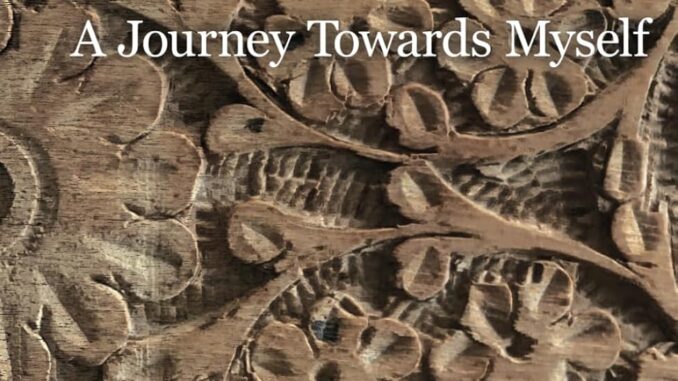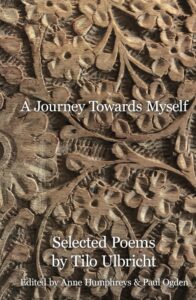

The Selected Poems of Tilo Ulbricht, ‘A Journey Towards Myself’ span a period of time from 1938 – when he was a child of 10 recently emigrated from Germany, up until 2024 – an old man in his 90’s struggling with his daily walk by the river. The collection is dedicated to ‘Seekers for Truth’ and through this collection he takes us on a journey which is far from comfortable, going through many of the trials we could also face if we are to discover any truths about ourselves and why we are here. Nevertheless, alongside these trials, and maybe even because of them, there are moments of great beauty, of seeing beyond the everyday.
Each poem is a recollection, sometimes reported immediately or occasionally remembered much later, reflecting a moment of ‘presence’, a different feeling, a different perception. The poems are sometimes lyrical and from time to time spare, but always there is a relentless questioning and a refusal to accept an easier way. This is true even of the poems toward the end of the collection which were written quite recently, although within these there is a stronger note of acceptance and a quietening of the suffering experienced before.
The poems are ordered chronologically focussed around two main periods – the first being his earlier life as a young man encountering the world, and the second following his retirement where he looks back and goes further within.
Tilo’s early times as a young boy were traumatic. He was sensitive, felt different. Two poems written much later reveal this – at school assembly he senses a ‘silence’ and wonders if anyone else felt the same and then in ‘Hunted’ we see him being chased and bullied and learning that ‘fear found a home prepared, and stayed’. The little boy theme recurs throughout the collection.
As a young man Tilo is out in life, soaking up what he sees, the changing seasons, the lonely streets. And there he finds love, joy and companionship. But all along there is a wondering, a sense of more, a need to climb a hill and ‘look beyond in order to discover an unknown landscape’, moments of awakening though mostly ‘I sleepwalk my days’.
What is needed to be truly and more fully awake? In ‘Descent’ he receives a truer picture of himself, hears his true ‘howling’ voice as ‘the scaffolding propping up my life collapsed’. He starts on the ‘hardest way’, coming to terms with all that he is, bit by bit, being reborn, trying to be open, trying to be more loving, letting himself be ‘worked on’, losing vanities. Certain images keep appearing, himself as a tree, or a leaf and certain sounds especially that of a ‘cello floating on the air’, and the river. He appears to become even more attuned to what is around him.
His father dies. His friends die, ‘rejoining the formless’. His wife dies more recently; he is ‘no longer able to walk beside’ her but wishes her well along her way.
Tilo is alone again but he feels more ‘included’, more realised; he may be half-blind now but the light is brighter. He has been to his depths and faced his fears. Here he is -‘an old man at the foot at the stairs or is it a young boy?’
Anthony Smith, January 2025